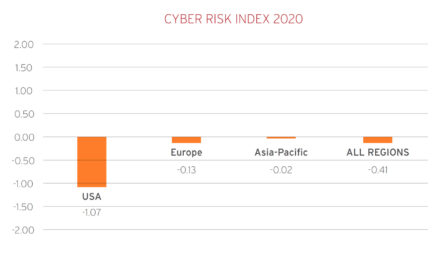Know the risks, memorize the safety tips, and when in doubt, bail out before you lose your job and life savings!
Online dating has been on the rise over the years, but as with all things digital, the risks of users losing control of their private data or getting ensnared in scams and other malicious activities are real.
What are the risks, and how should users of such services protect themselves? Cybersecurity firm Check Point shares a list of known cyber risks and also a list of online-safety tips.
First, the cyber risks:
- Losing control of intimate data: Users who share racy photos with their dates, or divulge any ‘scandalous’ information about their dating activities, are vulnerable to blackmail. When people register for dating services, a large amount of personal information is revealed. Cybercriminals have ways to collect this information by signing up as members, too. Otherwise, they target the dating services’ networks to exfiltrated data.
- Vying to be matched with malware: One of the powerful techniques that cybercriminals use in dating apps is creating an attractive profile, one which every victim would want to be matched with. Just a few alluring photographs can be the perfect hook to get interested suitors to ask for more info to be sent over—usually links to more photos and other types of files and URLs that can lead to execution of malware and/or spyware capable of obtaining the users’ passwords.
- Falling for fake romances: Using attractive profiles that are fake, cybercriminals continue to bait interested candidates and gradually gain the victims’ trust and adoration. Most often, this relationship starts without the parties actually seeing each other, but there is a promise to “meet soon.” The cybercriminal eventually asks the victim to send money “so that they can travel to meet up” or because a “serious problem” has arisen.
- Getting impersonated: With most internet users exposing a lot of their data online, their private data is accessible to everyone, including cybercriminals. This data can be pieced together from a multitude of social media and dating services and abused to impersonate any target. With this data, cybercriminals are able to create profiles pretending to be someone they are not, in order to fraudulently act for financial gain. This act can undoubtedly cause great damage to the person who has been impersonated.
- Getting more risk than bargained for: When your dating app profile is hacked, it can be sold on the dark web. In 2016, a dating website was hacked and the data of 32 million users was stolen, including some who had already unsubscribed from its services. Stolen data included emails addresses, passwords and other personal account information that cybercriminals can then further monetize through taking over banking accounts (since many people reuse the same login data for multiple online services), business email compromise or phishing and malware traps.
Tips for safe online dating:
- Never give confidential information to third parties: Any user who requests confidential information may be a cybercriminal, so to avoid running any kind of risk, never give out personal data in these apps.
- Do not download images or files to your devices: Photographs on dating apps are a key draw, but it is very important that they are only displayed on the application itself and are not downloaded or saved, as they could be hiding any type of cyberattack that could endanger all the documents and files on your mobile or computer. Same for any URLs or files that are exchange in the course of chatting.
- Do not seem desperate or trusting: This is a basic premise, but cybercriminals will be on the lookout for low-hanging fruit. If something seems strange or does not seem very real, it is better to be suspicious. There are plenty of fish in the sea, so do not take any needless risks by abandoning caution or losing your grip on privacy and self-protection.
- Beware of overly slick profiles: One of the best precautions you can take is to pay attention to details and be wary of newly created profiles and/or profiles with pictures that look like an advertisement. If, in addition, that attractive user shows too much interest or asks for too much personal information… that should ring alarm bells.
According to Gary Gardiner, Head of Security Engineering (APAC & Japan), Check Point Software: “Millions of people use dating apps or websites to meet new friends and, who knows, with any luck, find their life partner. However, they do not go unnoticed by cybercriminals, who take advantage of these platforms and the confidential information they contain when looking for potential victims to scam. The best way to stay safe is to proceed with great caution and understand the steps you can take to avoid the cyber risks that you could be exposed to.”

















